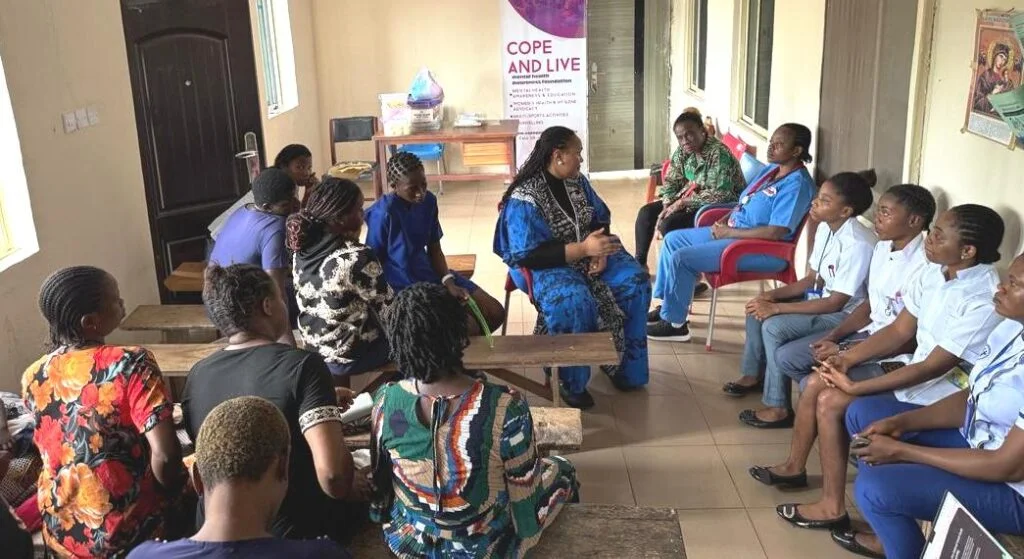The Cope and Live Mental Health Awareness Foundation (CALMHAF) has trained and empowered 25 nurses and expectant mothers on how to manage mental health challenges leading to better solutions.
Executive Director of CALMHAF Foundation, Rev. Chukwudiebube Nwachukwu, in an address during the training held at Ozalla Health Centre, Enugu on Friday, said that the training would foster holistic mental well-being.
Rev. Nwachukwu said that the training also would definitely enhance their emotional resilience and drive positive social relationship change within their communities.
He said that the training was part of CALMHAF’s Support for Caregivers Initiative and Mother to Mother Initiative, adding that both community initiatives were aimed at supporting the mental health of caregivers and mothers.
According to him, the training session created a supportive and inclusive environment where attendees could openly explore mental health challenges and solutions, equipping them to become advocates for mental wellness and support systems for each other.
“The participants have fully understood what poor mental health is; its signs, symptoms, and impact as well as providing a foundation for recognising and addressing it in both personal and professional contexts.
“Participants explored specific triggers of mental distress, gaining insights into factors that affect mental wellbeing, particularly for caregivers and expectant mothers.
“A detailed discussion on various mental illnesses helped demystify misconceptions, highlighting their prevalence and effects on individuals and communities.
Read also:
- Foundation decries soaring cost of asthma drugs, death of specialized doctor
- Foundations donates N1m to support conference on Urhobo Language studies
- Foundation plans N20bn investment in insect farm project in Rivers
“The session addressed how home problems, such as family dynamics or domestic stressors, can significantly influence mental health, especially for expectant mothers balancing multiple responsibilities,” he said.
The executive director said that the training x-rayed the dangers of excessive screen time both on television and cell-phones on mental health and impact of negative emotions.
“The training provided key solutions which focused on bouncing back from mental health challenges; fostering hope; the critical importance of seeking help; prioritising self-care; building resilience and creating supportive networks to navigate life’s challenges,” he said.
Rev. Nwachukwu said that the participants also utilised world-standard instruments to assess their levels of depression and anxiety, gaining valuable insights into their mental health status.
Responding, a participant, Mrs. Gloria Nwafor, who is an expectant mother, said she had learnt not to overuse her cell-phone for a long time as well as its negative mental and social consequences.
“After the training today, I will definitely reduce my screen time and prioritise quality time with members of my family and fostering stronger emotional connections and improving her mental wellbeing as well,” Nwafor said.
A nurse, Mrs Judith Izuchukwu , said that she had learnt a lot about emotional intelligence and how to build mental resilience, which have equipped her to support her patients and take care of her own wellbeing.






